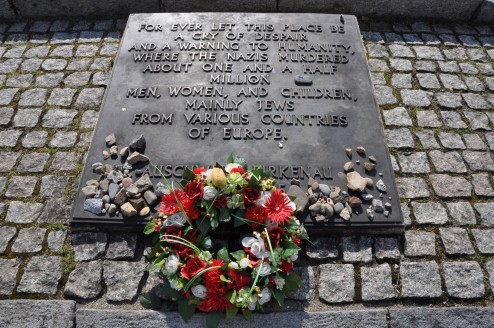 I hate the word “evil” for two reasons: (1) because of its religious connotations and (2) because its definition is relative and constantly changing. Same goes with “sin”. Two words with definitions that change depending who is in power.
I hate the word “evil” for two reasons: (1) because of its religious connotations and (2) because its definition is relative and constantly changing. Same goes with “sin”. Two words with definitions that change depending who is in power.
Every culture, every civilization, every person, defines evil in different ways. Evil is whatever the people in power decide is bad for the whole, or for themselves.
That being said, sometimes no other word can be used in its place. I don’t think there’s much doubt that Auschwitz was an evil place.
The erry emptiness of these sites chilled me to the bones. In particular Auschwitz II – Birkenau. Deep in my skin the grotesque inhumanness of the events that took here disgusted my entire being.
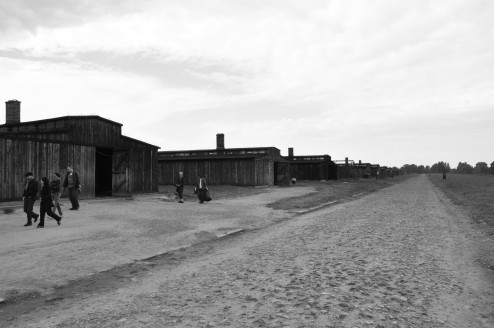
Our guide told stories of the victims, the perpetrators, the justifications, and the people who stood by and watched.
Prisoner’s belongings were sorted: valuable sent to Berlin, pots and pans given to the colonizers.
In a museum a room of over 8000 shoes, another with thousands of luggage bags, one with zillions of pairs of glasses, and another full hair, “just a small sample of the 80,000 or more that were found after the war,” said our guide.

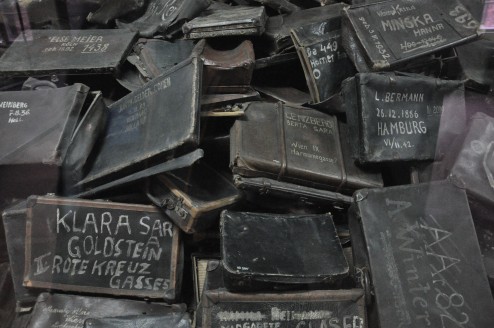
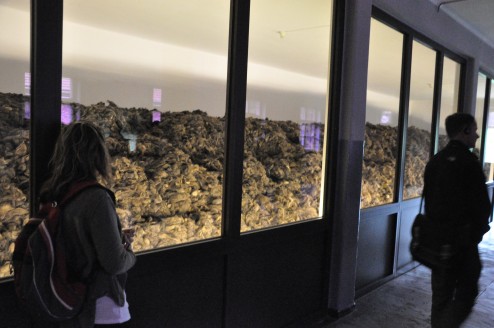
Auschwitz II – Birkenau is a sort-of extension camp close to Auschwitz built when the gas chamber capacity of killing 400 people a day wasn’t enough. Birkenau increased efficiency ten-fold – now 4000 prisoners could be executed each day. Plans were to increase that another ten times over with the continual expansion of the camps.
We walked along the tracks where trainloads of people were shipped from Amsterdam, Hungary, all around Europe, brought to Auschwitz to suffer in the most unthinkable ways.

“Which bed would you have preferred?” asked our guide.
I looked at the three levels of stark wooden beds lining up next to each other along both sides of the building – a wooden fixture designed to be a stable for horses. Each level of king-size bed shared by twenty-or-so people.
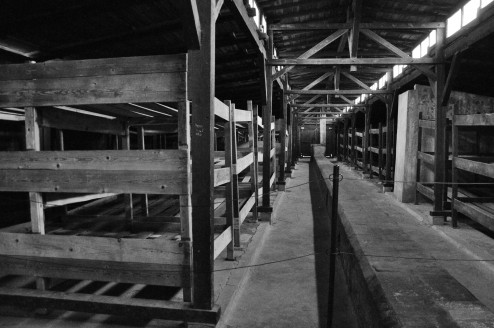
“The top?” Lisa suggested. “Because heat rises?”
“That’s right,” said our guide, “also because those on the lowest shared their bed with rats, and worse. Most prisoners had malnutrition and chronic diahorhiea so the lower the bunk you slept in the more people’s shit you were surrounded by.”
At the end of the tracks stood two gas chambers, or what was left of them. After the war the Nazis attempted to destroy the evidence of the crimes they’d committed.
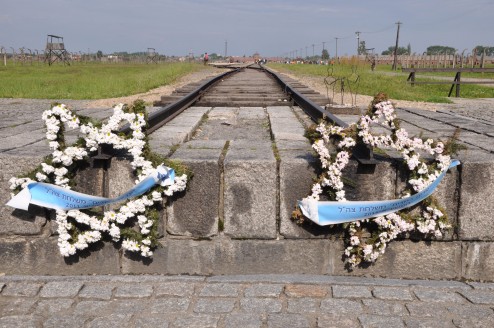
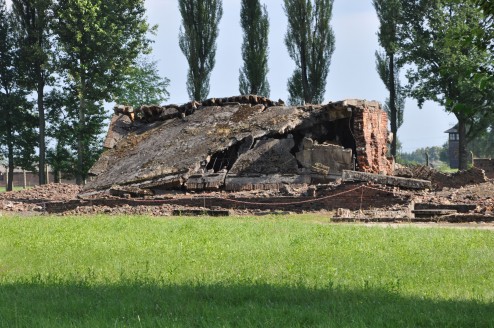
How did humanity come to commit such horrors? How did Hitler get away with it?
“For a starters it was the economic system,” explained our guide. “After world war one the poor people voted for extremist parties, in particular those who blamed the Jews for their poverty. They were said to be animals. Sub-humans.”
“At first they were sent here for reasons like missing a day of work, or reading the paper or listening to the radio. Then they were put to work in the fields, digging, or as cooks or in factories. Most only lasted a few weeks or months because of the conditions of the food, sleeping, work and lack of hygiene.” Our guide brought us to photos of prisoners attached to their date of birth, date of arrival and date of death.
“Over time, it just got worse. It is hard to know the number of people who suffered and died. Women, disabled people, and those old or sick, were often not even registered.”
We were shown the gas chambers.
“Prisoners were told to go to strip naked and go into a ‘bathroom’, which was actually a gas chamber, and together they suffocated and watched each other suffering and die. After that the bodies were torched.”
How did seemingly good normal people stand by or even play roles in the atrocities?
I remembered my Opa’s stories of the German occupation of Holland. Everyone had to wear identification cards. Jews had ones with big J’s on them. One day your friend was there, the next he’d have been taken away – brought to factories in Germany. Not just Jews, it could be anyone. But mostly it was Jews.
I remembered stories Opa told of working for the Underground, helping them make fake IDs for the Jews. Stories of food rations, and of eating horrible-tasting biscuits made from tulip buds just to survive. I guess there were a number of people didn’t stand back and watch.
The big question I was left with was why?
What did Hitler or the Nazi’s have to gain by killing off the Jews? Was it just a way to unite the rest of the people in a common cause? Was it about power? Can it be traced back to Hitler’s childhood – did a Jew pull his hair and steal his money?
“It makes you wonder what evil things we don’t notice today,” said Lisa. “Will future generations look back at us and ask how we stood back and let something else happen?”
Poverty and hunger? Environmental destruction? Genocides? Wars over resources? Israel/Palestine?
Which situations are we too involved? Which are we not involved enough? What will future generations think of us?
What is good and what is evil now might be different in the future. I guess all we can do is constantly question our definitions, debate what we think to be “virtue” and try our best not to let atrocities like Auschwitz ever happen again.
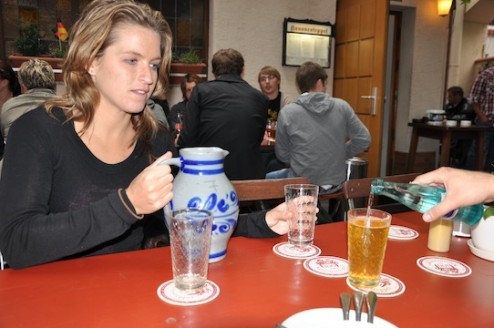
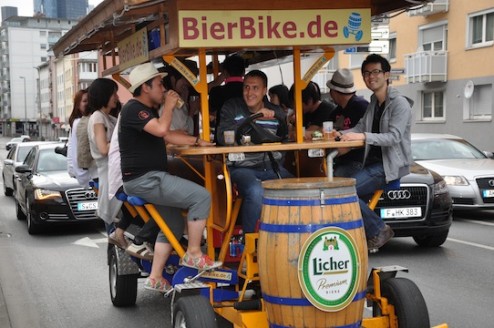
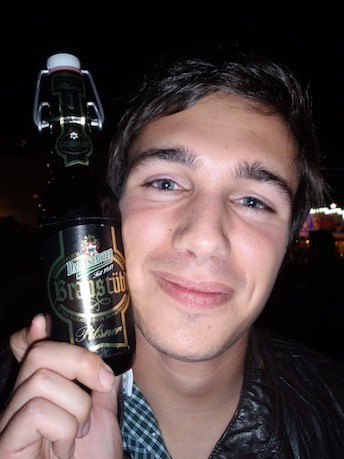
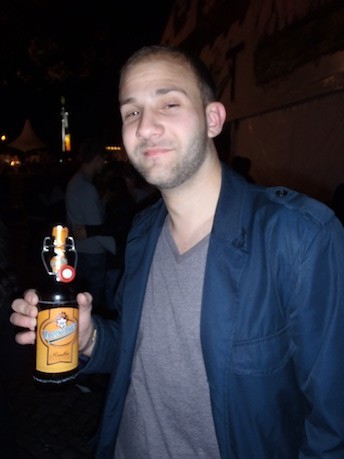
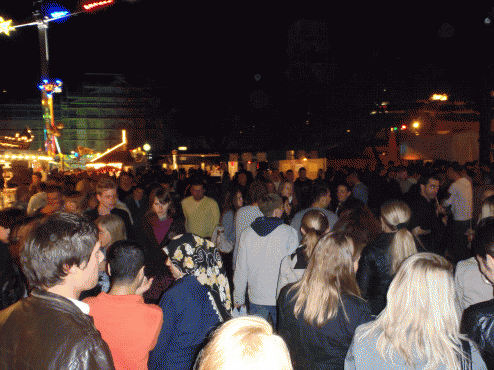
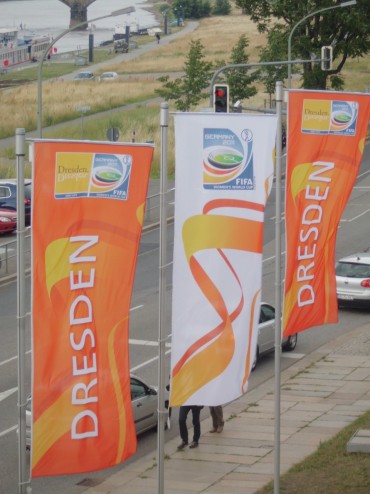 I hadn’t heard of a “micro-nation” until I got to Dresden. As you probably guessed, a micronation is a miniature nation within a bigger nation. Apparently I’d visited one – Cristiania back in Copenhagen. And “New Town” in Dresden was my second – well had I been there 20 years ago it would have been.
I hadn’t heard of a “micro-nation” until I got to Dresden. As you probably guessed, a micronation is a miniature nation within a bigger nation. Apparently I’d visited one – Cristiania back in Copenhagen. And “New Town” in Dresden was my second – well had I been there 20 years ago it would have been.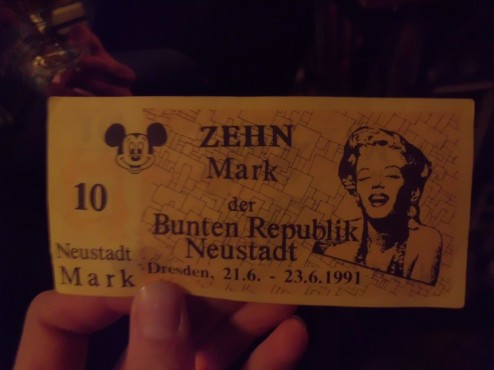
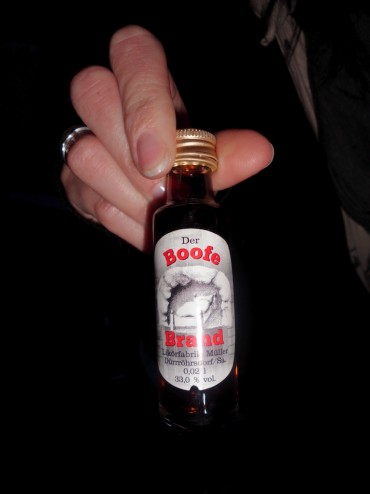
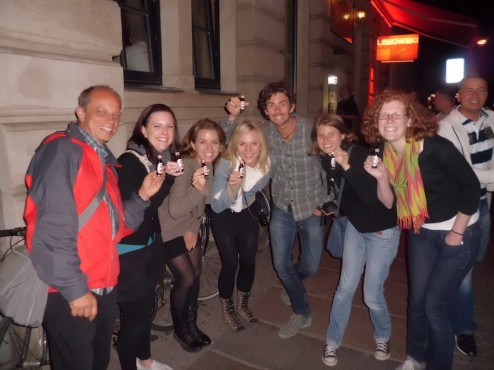
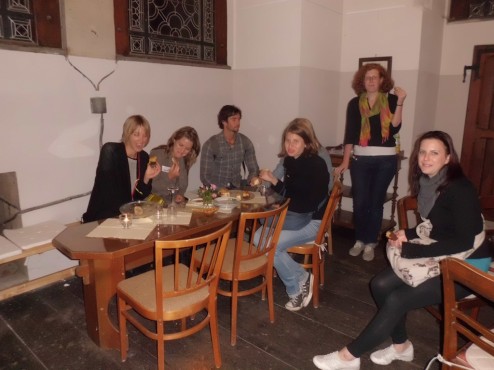
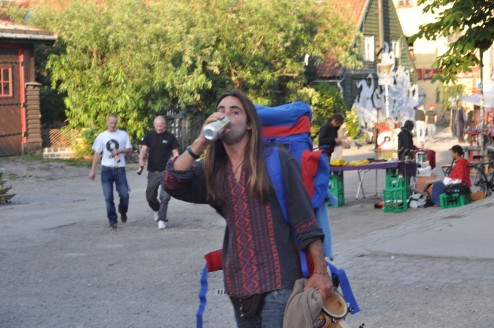 Even in Europe I seem to be drawn to South American cultures. Some hippies from Bolivia and Venezuela, as well as the Canary Islands, were selling jewelry on the street. Before long we were playing music, drinking beer, and joining the hippies and a crazy American family on an adventure to the anarchist town of Christiania.
Even in Europe I seem to be drawn to South American cultures. Some hippies from Bolivia and Venezuela, as well as the Canary Islands, were selling jewelry on the street. Before long we were playing music, drinking beer, and joining the hippies and a crazy American family on an adventure to the anarchist town of Christiania.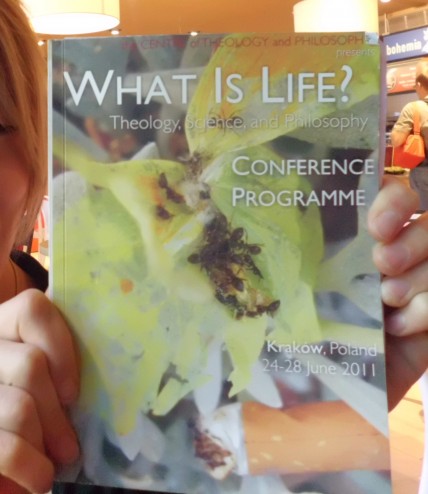
 I hate the word “evil” for two reasons: (1) because of its religious connotations and (2) because its definition is relative and constantly changing. Same goes with “sin”. Two words with definitions that change depending who is in power.
I hate the word “evil” for two reasons: (1) because of its religious connotations and (2) because its definition is relative and constantly changing. Same goes with “sin”. Two words with definitions that change depending who is in power.








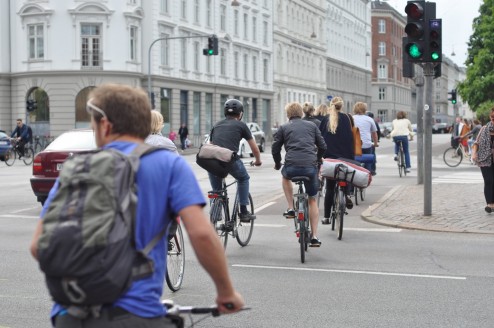 Imagine a world where being 180cm, 60kg, with long blonde hair, makes you AVERAGE. In Scandinavia, for the first time in my life, I felt short. It was a strange feeling. Used to towering over people and always kind-of standing out because of my height, blending into the crowd provoked a new stream of thought.
Imagine a world where being 180cm, 60kg, with long blonde hair, makes you AVERAGE. In Scandinavia, for the first time in my life, I felt short. It was a strange feeling. Used to towering over people and always kind-of standing out because of my height, blending into the crowd provoked a new stream of thought.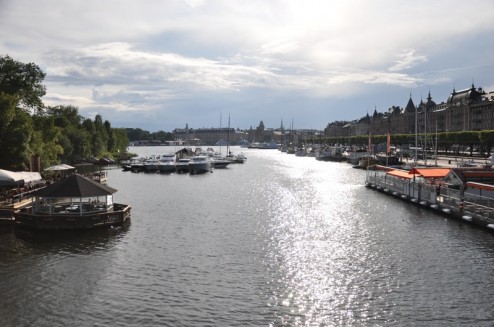
 Soon I am off to Europe followed by the United States, with a very big question mark surrounding my return date. I’m booked to leave 9 weeks from yesterday and be home just in time for Christmas… but I really have no idea what my future holds. Exciting as this sounds, when it comes the details, life in the 21st century can make preparations and decisions surrounding uncertainties a massive anxiety-filled pain in the butt.
Soon I am off to Europe followed by the United States, with a very big question mark surrounding my return date. I’m booked to leave 9 weeks from yesterday and be home just in time for Christmas… but I really have no idea what my future holds. Exciting as this sounds, when it comes the details, life in the 21st century can make preparations and decisions surrounding uncertainties a massive anxiety-filled pain in the butt.